There are times when it’s necessary to weaken the malignant tumor in order to continue fighting the underlying cancer. Paul Jay on theAnalysis.news.
Paul Jay
Hi, I’m Paul Jay. Welcome to theAnalysis.news. Please don’t forget the donate button. Subscribe if you’re on YouTube, and most importantly, come to the website and sign up on the email list.
Reed Hoffman
Do you see an increasing risk of totalitarian, negative regimes more than now arising as a response to the climate crisis?
Paul Jay
To some extent, it depends where. Yes, of course. In the United States, the tendency toward fascism is very strong, not only from the Christian Right, not only from the traditional military-industrial complex, like a Dick Cheney Right, and from corporate Democrats. In New York, finance would rather have the kind of liberalism in society that they’ve had, but if their wealth is threatened, they’re quite alright with totalitarianism because protecting their wealth is the prime directive. So it’s not hard to see a scenario where— here we get back to the conspiracy where some bomb goes off in New York. A dirty bomb, a viral bomb or whatever, and they can blame it on who the enemy of the day is, Iran or whoever. The Democrats bring in a form of a police state.
Most of the Democrats voted for the Patriot Act. They were all rallying around President [George W.] Bush, most of them for the invasion of Iraq, not all, but most of them. It was Lyndon Johnson that waged the war in Vietnam and suppressed as much as they could anti-war descent when push comes to shove. Now, that said, this is not something that’s going to sit well with the majority of American people, especially in the cities. Although if they stage a false terrorist attack, that’s enormous pressure on people because people want to be safe. If you feel like you got to put up with cops and soldiers everywhere not to get blown up, everybody knows that’s an easy tactic to arrange. It’s not the first choice for the majority of American elites. It’s not good for business, and it’s not the kind of society they want to live in. If it really was, they would have done it already. Although a section, I think Bush, Cheney, and some others actually did help facilitate 9/11. I don’t think that was an elite, primarily widespread decision by any means, but certainly, a lot of them profited from it.
Now let’s look at the other side. What are the possibilities for this not to happen? Well, there are some interesting things happening. [Luiz Inácio] Lula [da Silva] is probably going to get re-elected in Brazil. We’ll see if he really adopts a serious progressive agenda and rallies Latin America around that agenda. He has said— he’s a real critic of NATO and does not want to be part of an American military umbrella. If he sticks to that, and if they really start to take climate seriously in terms of the Amazon and generally, that will have a very positive influence on the world.
In France, you have [Jean-Luc] Mélenchon, who is quite Left. He has recently got all the left-wing parties who usually fight with each other to unite in the coming June elections for the National Assembly. If they’re successful and get a majority of seats, he possibly could be the next Prime Minister of France. Mélenchon is significantly to the Left of Bernie Sanders. Now, that’s not talking about Bernie’s individual feelings or ideas. I would guess if Bernie could be as Left as Mélenchon and still have any hope of getting elected to something in the United States, he probably would be. In terms of the policies that are espoused, Mélenchon is far to the Left of Sanders and might be the Prime Minister.
They also have made a really interesting agreement. In fact, I’m publishing a story about this today. They’re going to pursue some policies in France to do with lowering the age of pensions and increasing the minimum wage, which is in outright defiance of the policies of the E.U., which are really determined by German and French bankers. They have said if the E.U. tries to rule that some of these policies are not acceptable based on E.U. agreements, they’re going to defy them and do them anyway. So it could create quite an interesting crisis for Europe where the Left is really emboldened, and we’ll see where that heads.
At the electoral level, we’ll see what happens in the United States. I know people have high hopes for progressive politics in the United States. It has to be understood that it is the center of the empire. The elites have two very serious weapons: massive militarized police forces and endless amounts of money to throw at people if they have to. During the Pandemic, they gave everybody a bunch of money, and if they had to, they could do it again. They have a lot of levers to try to suppress really serious dissent.
On the other hand, in the cities and certain States, there’s large support for Sandersque and even more progressive politics. So in certain States, there’s more likely to be some breakthroughs. It looks like, given federal politics, it’s going to go through some dark days. Maybe if the American Left can overcome sectarianism and figure out a way to build a really broad progressive front that has to include quite a wide spectrum of anti-fascist politics, anti-totalitarian politics, very wide spectrum, if it’s going to be effective.
So far, we’re not seeing it, but maybe people will get so freaked out by a Supreme Court that illegalizes abortion and a Congress the Republicans take over. Again, I would really be concerned. After 2024 if the Republicans win a far more threatening posture towards China. Not to say that Biden’s rhetoric is not inflammatory. Not to say that Biden’s support for legitimatizing the idea of Taiwanese independence, not overtly, but close to it. I mean, what Biden is doing is very provocative to China. The Steve Bannons of this world are some of the intellectual thinkers behind this growing theocracy. They want more than ‘almost’ war with China. A lot of these people want real war.
I hope this awakens that plus coming government that denies there is a climate crisis. I hope that rallies a broad, broad front around a climate strategy as the front and center issue. It doesn’t matter what other issues you care about. You join and vote for candidates who have a real climate plan at every level, whether it’s city, State, or federally, and you put aside every other difference. A real climate plan is not greenwashing; it’s phasing out fossil fuels by regulation, phasing in sustainable energy by law, by regulation, not by reliance on market mechanism. I wouldn’t rule out all market mechanism, but if you rely on it, if you rely on carbon capture, as far as I can tell, you’re dreaming. If we can rally around that kind of program, and maybe—
Reed Hoffman
It was less than a week ago, I believe, there was this leaked draft by the Supreme Court as a majority opinion talking about how they think it’s unconstitutional. What do you think are going to be— I guess actually, first of all, do you think that they’re going to go through with overturning this? If so, what do you think the ramifications might be in regards to American domestic politics? Do you think this has the potential to empower a more left-wing coalition that is able to start addressing more of these serious issues, or do you think this is going to just be a fundraising vehicle for the Democrats?
Paul Jay
I’ve almost given up trying to predict American politics because it’s often irrational. All I know is if I was a Republican, I would do everything I could to postpone this decision by the Supreme Court. I think it was very effective leaking it, I guess, to kind of energize your base. I wouldn’t want it past because I think it’s very hard to calculate the effect it will have in the 2022 vote. Yeah, of course, amongst the population that is really anti-abortion, it will make them happy, but they kind of already were anyways. It’s not like they weren’t going to vote for the Republicans. Controlling the Senate is important to them in case there are any other Supreme Court vacancies and so on.
I think it’s hard to calculate how much this will energize people who either wouldn’t vote or might even have voted Republican but now might vote Democrat because they want women to have a choice. I saw an interesting piece. I don’t know if it was in the Washington Post or somewhere else. The majority of people of other religions, like not white Protestants, but the majority of people of almost every other religion, from Hindu to Sikh to Jewish, other Christian denominations, almost everyone, the majority defend the right of women to choose. That’s a lot of people who might have voted Republican previously, but on this one, the abortion issue might be enough to swing them the other way.
I’m not one that completely dismisses the Democratic Party. I did an article before the last election on why the Left should vote for Biden. I said Biden represents the underlying cancer of monopoly capitalism and financialization. Financialization and monopoly capitalism give rise to fascism. Biden represents a process that leads to fascistization because of the existential threat of climate and the supremacy of the United States. So the rising, what they see as a threat of China. It’s a slower-moving cancer. This cancer also gives rise to malignant tumors. Trump, and that movement is a malignant tumor of the underlying cancer. There are times when you have to focus on the tumor because you can’t eradicate the whole cancer. If you don’t surgically remove or through chemotherapy or radiation, you don’t get rid of the tumor, you aren’t going to be around to deal with the underlying cancer. So I see Trump and what he represents, not Trump himself, but the movement of the far-right Christian nationalists and fascists. There are times when you have to say, okay. Yeah, I’m never going to stop calling the cancer a cancer. I’m never going to stop calling corporate Democrats the political party of the underlying cancer, but there are times you’ve got to focus on the tumor.
The United States political system as such, whether it’s a third party at the federal national level, I’m not talking— there are certainly circumstances where a third party does make sense. If you’re talking about a presidential run and, in many cases, Senate and House, but even there maybe not always, you got to focus on the tumor so that you’re around to fight the cancer.
Look at World War II. The greatest imperialism leading up to the 1930s was Anglo-American imperialism. Nobody killed more people than England and the United States. They were the ones— England had a lot of colonies. The United States wanted more colonies. They wanted to suppress any growth of Germany after World War I. If you were anti-imperialist in the 1930s, you got to be anti-Anglo American imperialists who wanted nothing more than to bring down the Soviet Union. I’ll say again, the Soviet Union became a police state and so on, but it still had a lot of socialist characteristics, and the Anglo-Americans wanted it down.
Did that mean with the rise of [Adolf] Hitler, this tumor of the underlying cancer, did that mean progressive people didn’t rally around defeating Hitler? Would you tell French partisans not to take arms from the British and the Americans to fight the German invaders because the Americans and the British were imperialists? Well, if you said that, one, you’d be nuts. Two, nobody would listen. There are times you’ve got to focus on the tumor, but you should never fall into merging with the imperialist nationalist rhetoric and narrative. Never fall into defending your own sovereignty or your own nationality. We got to tell people the whole story.
Demonizing, vilifying the Democratic Party. A lot of people that go after the Democratic Party, they barely talk about who owns stuff in the United States. They barely ever talk about public ownership and what socialism might look like. So, in the final analysis, to answer this question, there is no hope for this world without some new invigorated form of socialism without public ownership.
Someone tell me how you’re going to have an effective campaign against climate change without central planning? I mean, there isn’t anyone that can say— not a single capitalist could possibly say the market will deal with the climate crisis. Certainly, in time that it’s going to mean anything. You have to go to denial. You have to say, well, there isn’t a climate crisis, then fine. As soon as you have central planning, which obviously we already have central planning because the Pentagon is already part of central planning. Then you have to say central planning for whom? There is central planning for the people, Central planning to really fight the climate crisis or central planning to keep making rich people richer.
Reed Hoffman
I think that’s spot on. I have a pretty negative view of the Democratic Party, but I do agree that there are instances where you have to focus on the more acute issue. We have a lot of acute issues.
Paul Jay
The Democratic Party, institutionally, is part of the State. Republican and Democratic parties, even to the point that when someone’s nominated to be the party’s candidate for President, they’re not even elected yet. They already get brought in. I don’t know about Bernie Sanders, but anybody else. They already get brought in to be briefed on top-secret national security questions. No other party gets that. When Jill Stein got nominated to be Green, I don’t think she got invited by the CIA to get briefed on national security questions. So the Democratic Party and the Republican Party they’re part of the State apparatus.
Now within the Democrats, there is some room for oppositional forces, some room. We’ll see; I don’t know how much. At some point, this is what I always thought might happen; if the pro-Sander-type forces ever got strong enough, they would be so suppressed in the Democratic Party that it would then split and create the basis for a third party with mass support. I find it hard to see that the people that really control the Democratic Party would ever allow a progressive to really become its standard-bearer. Maybe someone with a little bit of seriousness about climate, maybe.
So when I say this, it’s not about being negative about the Democratic Party. I talk about, don’t demonize it as if the corporate Democrats are something, not just an extension, reflection, part of American monopoly capitalism or the State. They’re not the devil any more than— you know, honestly, none of these players are the devil. It’s just that because of social media, there’s a brand coming from the Left, spending most of your time attacking the Democrats, even cozying up to people like Tucker Carlson. That’s a brand that does really well within a section of people whose identity is wrapped up in their disillusionment with the Democratic Party. “I used to believe, I grew up believing in Democrats. They were going to do good for the people.”
To me, the Democratic Party was the party of the Vietnam War. I grew up hating the Democratic Party. To me, the Democratic Party was the war party, and they were the ones that were around when Martin Luther King got killed. It’s about the system. It’s about the State. There’s some wiggle room in the Democratic Party when they’re empowered.
For example— and this is not a minor issue. Trump advocated militarizing the police at a completely different level than [Barrack] Obama ever did. Trump said about Black Lives Matter; put these people in jail for a decade or more. The suppression of dissent under these right-wing theocrats who get their guidance, they think from God. They are actually organized by very organized Christian nationalist groups like the Family and others who work at recruiting senators and senior military people.
I’m told by Mikey Weinstein, who works on these issues, that may be as much as 30% of the military are Christian nationalists now. Organized Christian nationalists. They have influence in the Democratic Party too, just less. More in the Republican Party. Let’s just not demonize. Let’s try to understand these various forces and find— my point here was that the far-right in power will be far more vicious in suppressing dissent. We have more room to organize.
Right now, there are places in Russia, and I don’t know if I said this already. If you don’t say the word special military operation and you say the word war, you can be arrested. Well, we’re going to see that. We could easily see that in the United States. We’re already seeing social media deciding who gets to speak based on what they say, the big tech companies. So there’s more room to move and to organize when the Democrats are in power. We shouldn’t have illusions about who they represent.
Reed Hoffman
That makes sense to me. My interpretation of what you’re saying and kind of also, my previous view is the Democrats; it’s a systemic thing. You can’t just take one little part of the system and try to view it in isolation. It’s really easy to look at Hillary Clinton and all the evil things she’s done and go after the Democratic Party, and that’s fair enough.
Paul Jay
They’re not completely on the same page. There are significant differences. It’s not because the corporate Democrats and their financial backers are much nicer people, but they depend on the cities for their electoral support. American cities, on the whole, are fairly progressive. Certainly compared to most rural areas of the country.
I was talking about putting my hand— when you go to school, you got to put your hand on your heart and say I pledge allegiance. We lived in New York for a little while. My kids were in school. I have nine-year-olds. I told the teacher that I don’t want them standing. If they don’t want to, it’s okay with me. They don’t need to put their hand on their heart. They don’t need to stand. The teacher said, oh, I so agree with you. I agree. I don’t make any of my kids stand up. Well, I’m sure there are plenty of places in the United States that if a teacher said that, they’d get fired. So the Democrats depend on a far more progressive population for their votes because the cities, honestly, they’re generally a little more educated. The working class is more educated. They’re more unionized.
I lived in Baltimore for seven or eight years. Under the Obama administration, the Department of Justice came in and investigated the Baltimore Police Department. In fact, there’s a show now on HBO called That’s My City or This Is My City [Edit: We Own This City] about the corruption of the Baltimore police force. It led to some reform. I don’t know how much, but some. The policing was a little less vicious after the DOJ investigated, a little. Well, if you’re living in downtown Baltimore, a little matters. If you’re some white dude in front of a computer all day and you’re doing okay, then those little differences don’t matter that much. Too much of the population, those little differences do matter. So I’m always wary of saying they’re identical, the two parties. On some critical issues, sure. Defense of the elites, fundamentally, yeah. There are differences, and some of the differences matter.
Reed Hoffman
What advice would you give to someone— it doesn’t have to be super in-depth, but just things that you’ve noticed or pitfalls that you’ve noticed along the way. What advice would you give to someone like myself or any other young person that might watch this on how they should continue to try to spread this message and organize, agitate all of that?
Paul Jay
Well, first of all, I did a series of interviews with Jane Mcaleevy, who I called an organizers’ organizer. I would suggest watching all seven or eight interviews. It’s a great series. I think she’s done great work. She’s talking about the methodology of how to organize. Two, get organized wherever you are. If you’re in school, get 20 people together. In fact, Jane gives these courses. If you can organize 20 people, then the 20 people can take the course. Wherever you are, start organizing around, I would say, first and foremost, climate, and then the issues that are facing the people that you’re organizing, their direct interest, whether it’s students or in the community, wherever.
Electorally, don’t vote for anyone that doesn’t have a decent climate program in the primaries. There are times I would hold my nose and vote for a Democrat to beat a Republican if necessary. I’d never shut up about if it’s a corporate Democrat, who they are and what they are. It’s a terrible time to be young in the sense that it’s worse. Even when I was young, I was sure the world would end before I hit the age of 20. I remember so distinctly the Cuban Missile Crisis. Every day I really expected it to be the last day. I said earlier I quit high school and didn’t go to University. Well, that’s because I thought the world would end, and I didn’t want to— no, really. I said, what the hell’s the point? I’m not going to spend the last few years of my life going to school because I never liked it much.
So as terrible as being a kid and the lead up to World War I, World War II and Vietnam and so on, the climate crisis is just a whole other thing. It’s difficult to accept the science. It’s difficult because if you really internalize that life as we know it is coming to an end, and because I know that now, I’ve got to do something about it, then you got to change how you live. I’m doing what I can here in media and so on; it’s my thing. Whether that’s the most effective thing, I’m not so sure, actually. There are a lot of groups and organizations that are organizing, and they’re going door to door talking to people.
I think that’s the other thing I would really highly recommend. Organizing through social media, organizing by being online, even though that’s what I’m doing. Yeah, but I don’t know that’s the most effective way because the people we need to talk to the most are not watching this stuff. The media is so siloed that you’re watching FOX, mainstream news, or probably no news. I mean, a lot of people have just completely tuned out and watch entertainment programming almost exclusively. I understand why because people say to themselves, everything looks like it’s going to shit. I can’t do anything about it, so I might as well enjoy myself. Just makes me feel better to watch this stuff. So being young now means, like, what Greta Thunberg has done.
You got to figure out what you can do. First is to get together with whoever you can that agrees with you, educate yourself, and then start talking to people who don’t agree with you. Slowly persuasively, but don’t hit people over the head. Go, listen. I mean, one of Jane’s main methodologies, and it’s the same with other people doing this kind of organizing; you knock on doors, and you listen to people and then slowly talk.
I know one of the most— I’ve found, and I’ve talked to a lot of people, ordinary people over the years, who don’t agree with me. It’s not just listening. Once they understand that you’re not there to show for the Democratic party that you have lots of critique for corporate Democrats, once they get that, now they’re much more willing to listen because they don’t feel like you’re there just to force them to vote for people that never did much for them. This is partly why Bernie does well when he has these town halls amongst workers in West Virginia or whatever. People have to hear how threatening it is.
I was talking to an organizer in West Virginia, and they talk a bit about climate, but it’s not front and center. They talk more about the opioid epidemic and unemployment, yeah, and they’re all so serious. I’ll bet you most people in West Virginia don’t know that when the floods come caused by the climate crisis, sections of West Virginia are more at risk than the shorelines of Florida. It’s crazy. People don’t know. So get organized. If you’re at work, in the community, at school, find some organizations that are doing this kind of door-to-door talking to people with climate, I think, front and center. There’s never been a time we don’t so badly need a youth movement on a broad scale.
Reed Hoffman
That’s great advice. Thank you very much. The thing you were talking about with Jane is that on your website. Could I go give that a watch?
Paul Jay
Yeah.
Reed Hoffman
Cool. Awesome. Well, I think that covers all the questions I had, and if you have anything else you want to add, now would be the time. Other than that, I just wanted to say thank you very much for this. I truly do appreciate it.
Paul Jay
Yeah. Just thank you for doing it.
Reed Hoffman
No, my pleasure. Believe me.
Paul Jay
Okay. Say goodbye to everybody.
Reed Hoffman
Bye. Have a great day, everyone.
END
Podcast: Play in new window | Download | Embed
Subscribe Apple Podcasts | Spotify | Android | iHeartRadio | Blubrry | TuneIn | Deezer | RSS
Never miss another story
Subscribe to theAnalysis.news – Newsletter
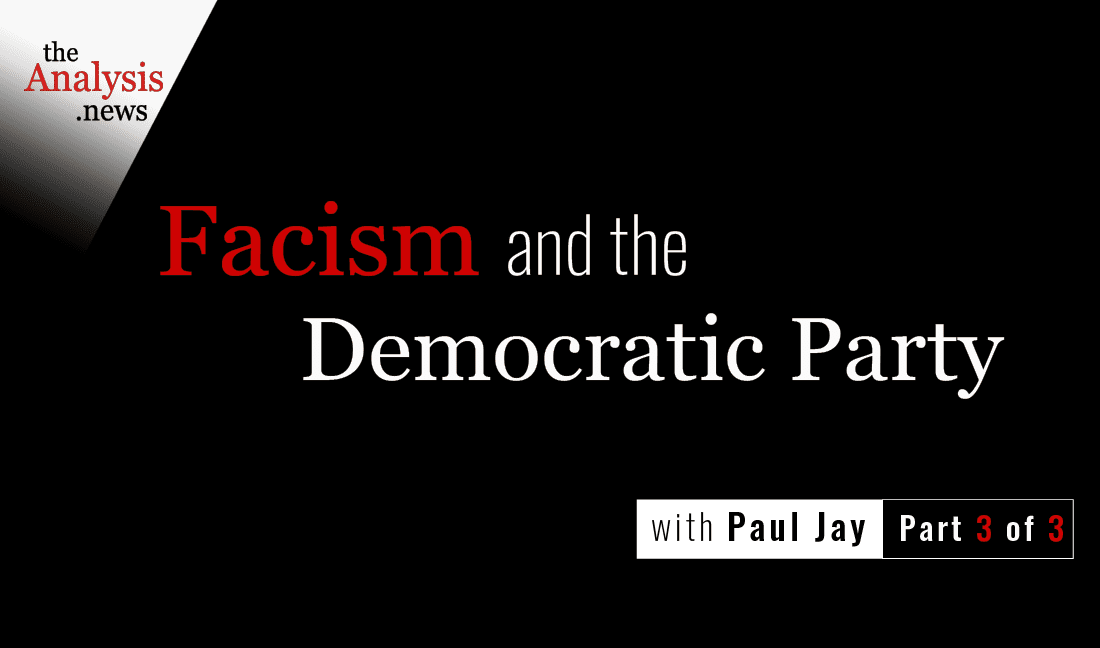

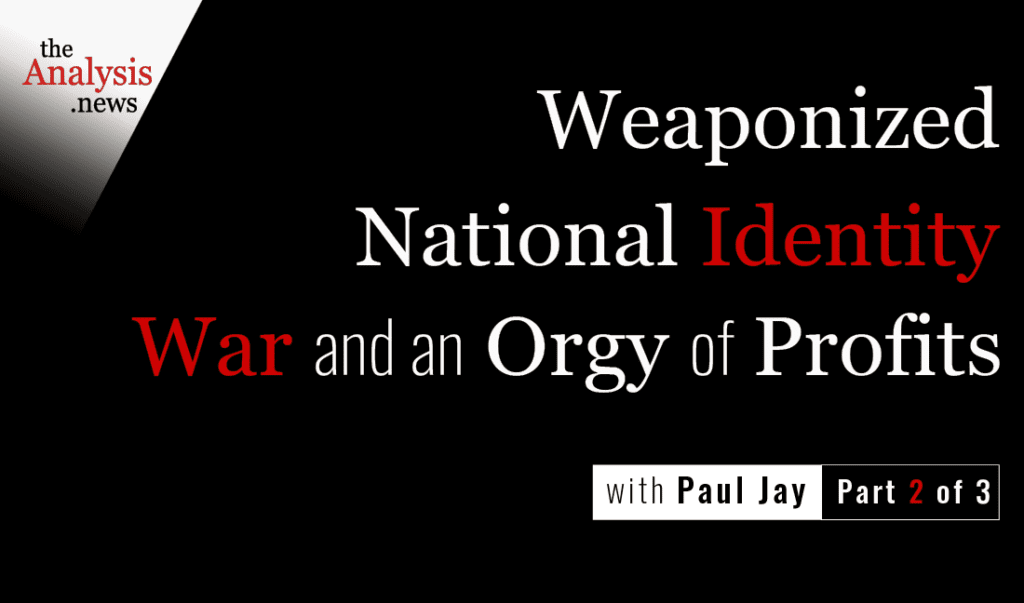
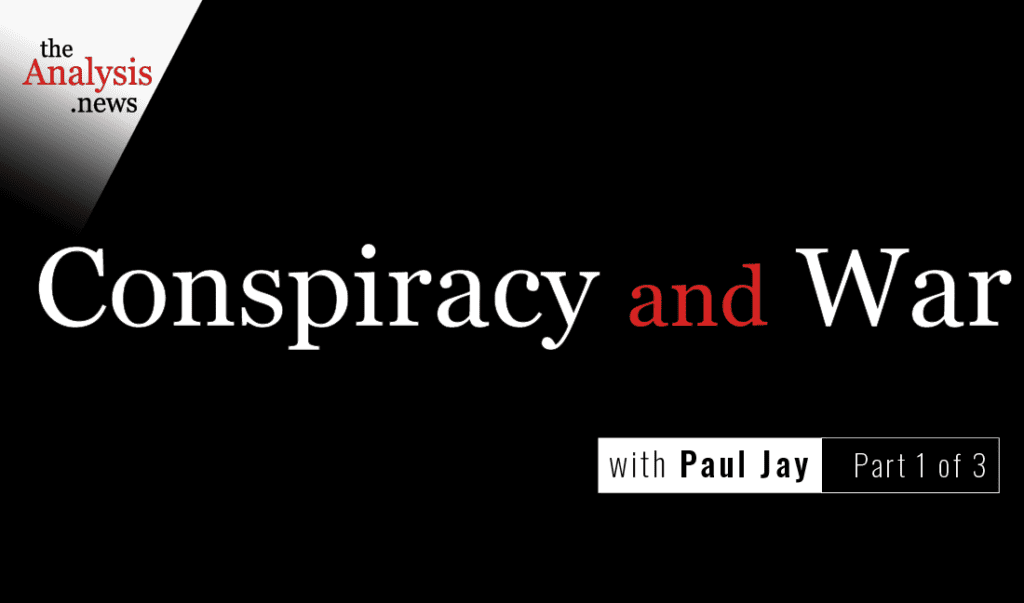
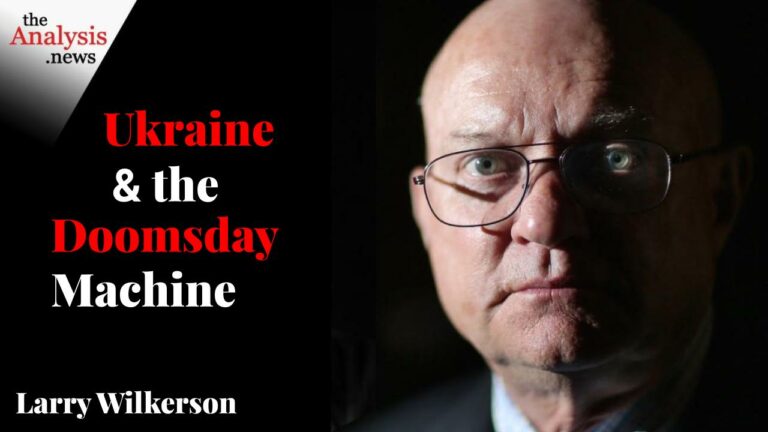
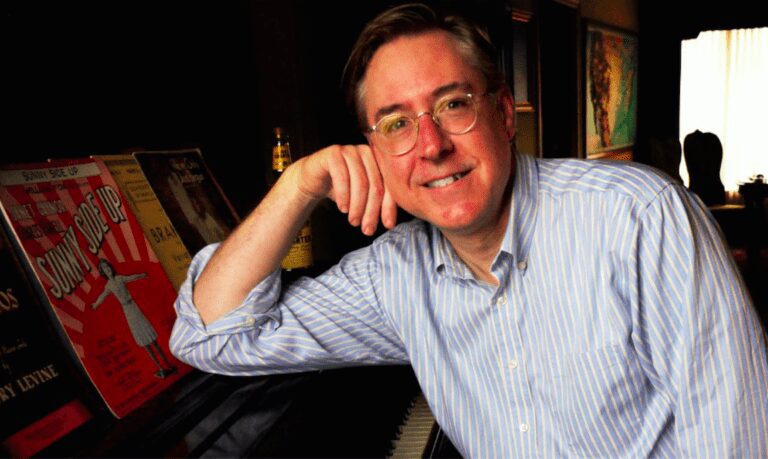

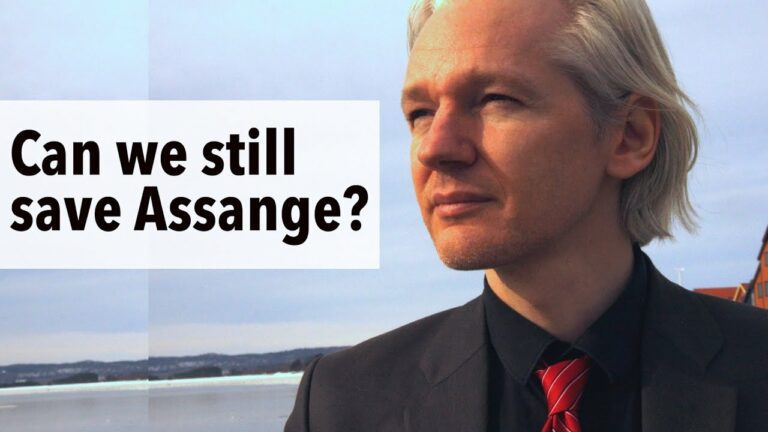
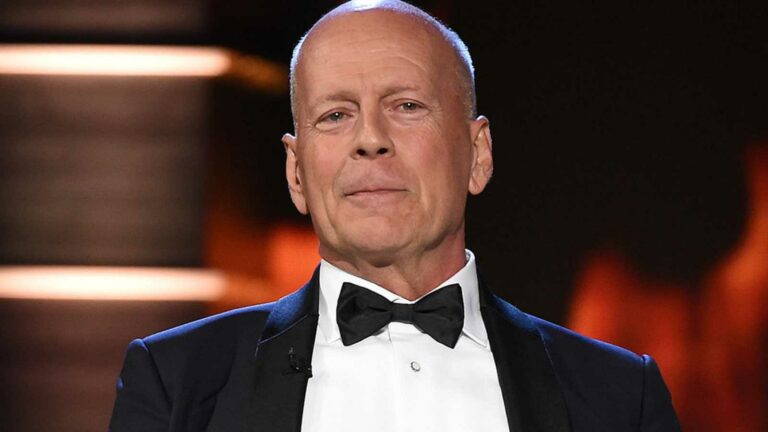
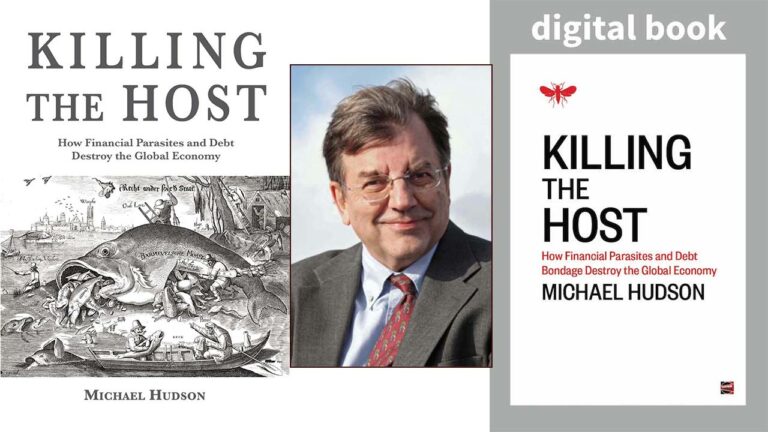
Great stuff. Nice to hear Jay’s very sane opinions
Been a while. Would have liked to see my comment on this article, critical of versions of history which may sound left to some, but have no basis in fact.
Paul Jay: Look at World War II, the greatest imperialism leading up to the 1930s was Anglo-American imperialism. Nobody killed more people than England and the United States. They were the ones— England had a lot of colonies. The United States wanted more colonies. They wanted to suppress any growth of Germany after World War I. If you were anti-imperialist in the 1930s, you got to be anti-Anglo American imperialists who wanted nothing more than to bring down the Soviet Union. I’ll say again, the Soviet Union became a police state and so on, but it still had a lot of socialist characteristics, and the Anglo-Americans wanted it down.
This is a sadly familiar sort of “history” blotting otherwise rational discourse. For it is fiction. History of an alternate universe. Especially about the USA. There was NO Anglo-American imperialism “leading up to the 1930s” or “in the 1930s”. There was British (& French and other lesser) Imperialism(s). There were two leading anti-imperialist powers then- the USSR and the USA. The USA did NOT “want more colonies”. There were NO new colonial ventures or occupations after Wilson. In the latter part, the world’s leading anti-colonialist was unquestionably FDR, but anti-imperialism was so strong earlier that Philippine decolonization plans started under Hoover (vetoed – but his veto was overridden. Hare–Hawes–Cutting Act). And of course there was then Roosevelt’s genuine Good Neighbor policy, military withdrawals etc.
They wanted to suppress any growth of Germany after World War I.
And this was a bad (or imperialist or colonialist) idea .. why? !
Yes, of course there were imperialist elements in the USA. But they were NOT in power during this era, but very much out of it [until Truman and more, Eisenhower]. Far from wanting to bring down the USSR, per a minor 1932 campaign promise, FDR recognized it. In the UK, of course, the most ardent imperialist was Churchill. But he fought the less imperialist Chamberlains, Munichmen, Cliveden set, who were the ones bent on bringing down the USSR. They rejected numerous offers of alliance from the USSR, intent on giving Hitler a free hand to do destroy the USSR & even more. So strangely enough anti-Sovietism and imperialism were negatively, not positively correlated in the UK.
Finally, of course Churchill’s famous “I have not become the King’s First Minister in order to preside over the liquidation of the British Empire.” was of course a fruitless complaint aimed at his friend FDR. Who as all could see aimed at doing precisely that and succeeded. Though he of course did not live to see it, FDR was the prime architect of the great postwar decolonization and is acknowledged as such – who else?
The many hands participating to the Bombing of Dresden, their denial that their slaughtering of these tens of thousands of civilians were justifiable..
https://www.americamagazine.org/issue/581/bookings/terror-bombing
” bombing of Dresden, the suffering and dying and depicts the Germans as victims of allied “terror”.
Paul:
One show I hope you can do, is a type of study of modern American society, how our economic lives converge with our political views. I ask this because it’s my observation that the general public will not be motivated in a determined, sustained way by socialist or environmental movements, until their relatively atomized, consumer lifestyles are really threatened. Modern life has many conveniences, many forms of “bread and circuses”, not least of which is electronic diversion (social media counts). There are, as you point out, many disenfranchised voters, mostly rural, who support Trump’s MAGA movement, but the level of suffering for the majority is not what it was in the first half of the 20th century.
…
Another observation is that when we talk about social movements, we need to find common ground. It’s not like the early 20th century, to use this example again, where there are whole communities of farming families or whole factories of workers with common cause. Today, we rarely work with our neighbors directly (maybe not even know our neighbors), unlike past generations, where people worked as a community to provide for mutual needs: this doesn’t really happen today in North America.
Technological innovations like automated machines or computers have fractured common ground, globalization has fractured common ground locally, consumer advertising and individualized lifestyles have fractured community. If you can’t find a place in the economy, say because rapid inflation shuts parts of it down, or climate change destroys much of the economy in the future, there will be widespread common ground among people, but I don’t see this now. Perhaps you can tell me I’m wrong.